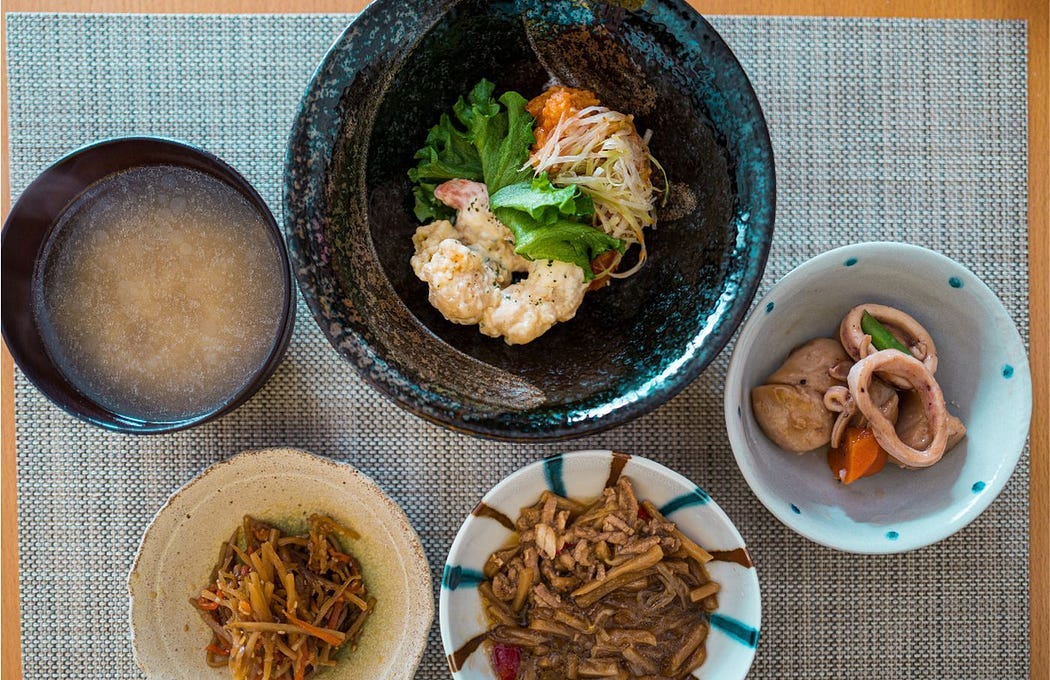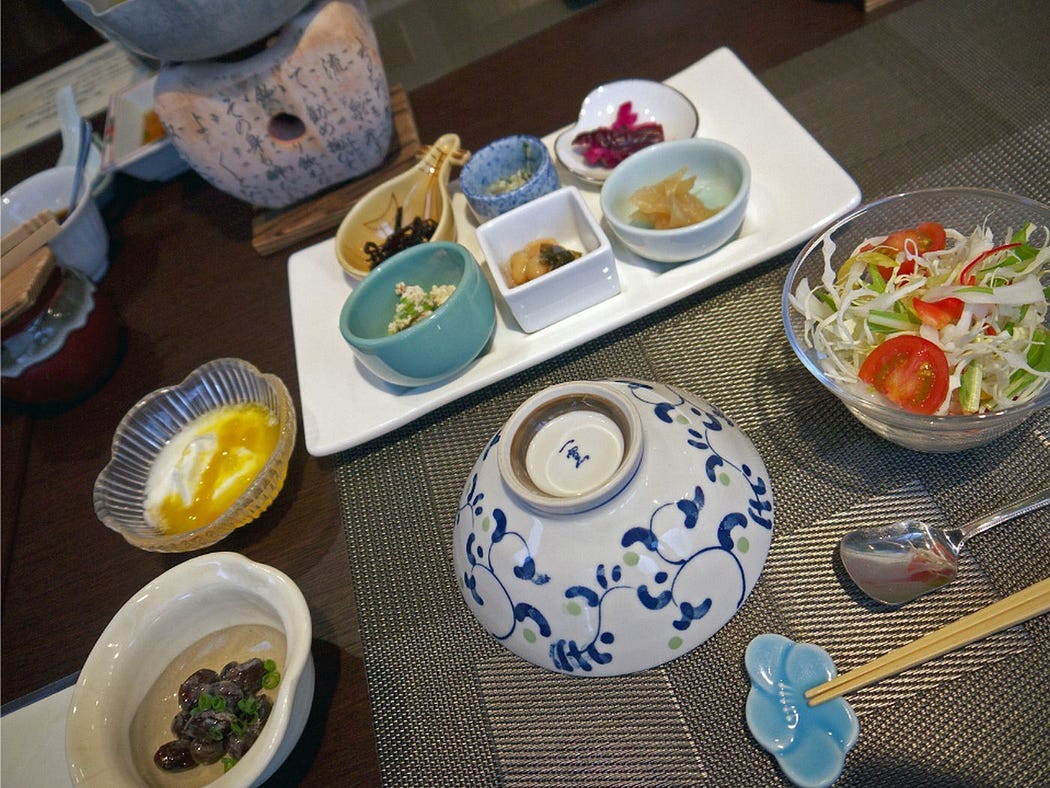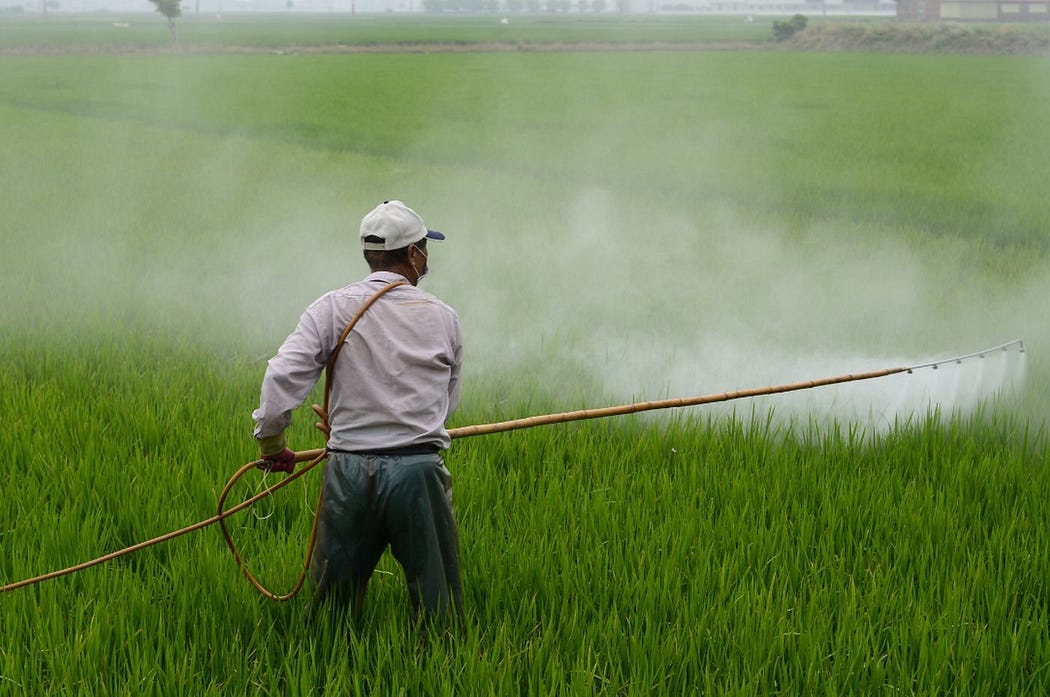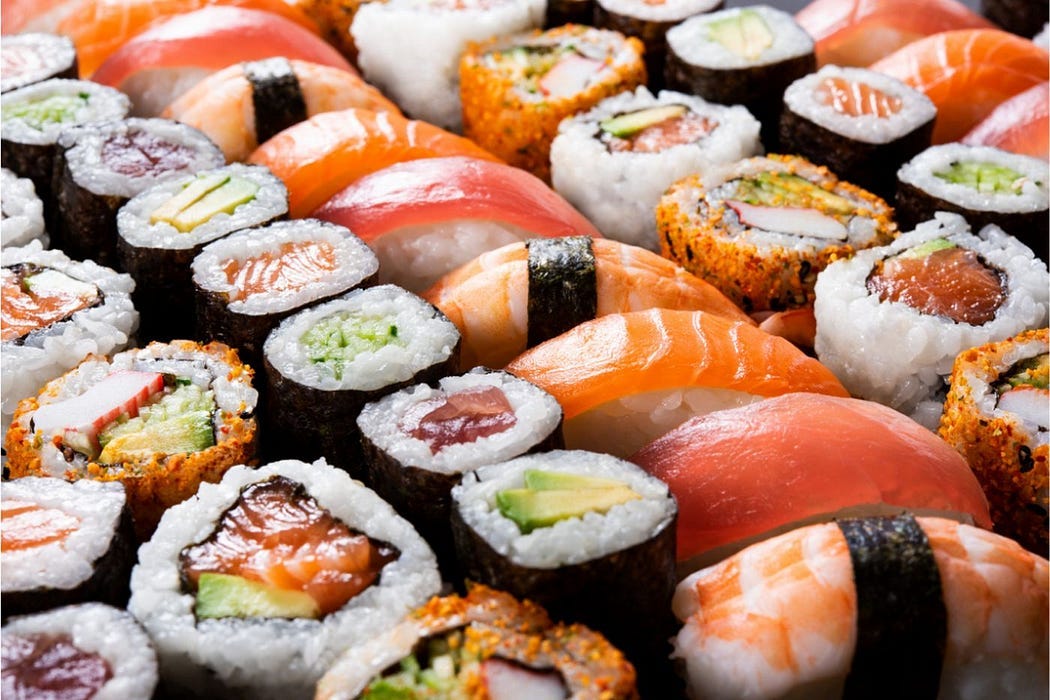The Healthy Japanese Diet: Myth or Reality?
Why one doctor claims washoku may not be as healthy as claimed.
Japanese food is so healthy.
Japanese people live longer because of their healthy diet.

Claims like these are ubiquitous. But how much truth do they hold? Is washoku, Japan’s traditional cuisine, truly the gold standard of healthy eating?
Maybe not, argues one Japanese physician who has stirred debate with his bestselling books on diet and nutrition.
What is washoku?
The term washoku combines wa (meaning Japan) shoku (food).
Registered as a UNESCO Intangible Cultural Heritage item in 2013, washoku is widely celebrated for its perceived health benefits and aesthetic appeal.
Washoku is characterized by four essential traits.
Fresh, seasonal ingredients prepared in a way that respects their characteristics
Balanced nutrition to support good health
Visual and cultural connection to nature and the changing seasons
Ties to traditional celebrations and annual events

The fundamental makeup of a washoku meal is based on ichi-juu sansai (一汁三菜): one soup and three side dishes, a combination believed to provide an ideal nutritional balance.
As nice as all of this sounds, one Japanese doctor named Dr. Zenji Makita has written two books (食事術 and 糖質の話) warning against romanticizing washoku and its supposed health benefits.
Hidden Pitfalls of Washoku
1. Too many carbs
At the core of the washoku diet is rice, Japan’s quintessential staple food. While rice is undeniably comforting and versatile, its high glycemic index (GI) raises serious questions about its health impact.
The Glycemic Index (GI):
Rice: GI 73
Table sugar: GI 65
Cornflakes: GI 77
The glycemic index (GI) measures how much a food increases blood sugar, on a scale of 0 to 100. eaten.
Pure glucose is assigned a value of 100, and all other foods are rated accordingly.

With a GI higher than sugar, rice can cause dramatic blood sugar spikes and crashes, increasing the risk of diabetes. Some Japanese nutritionists even recommend limiting rice consumption to one bowl per week.
2. Too much salt
Staples of the Japanese diet—miso soup, pickled vegetables, and soy-sauce-heavy dishes—are often loaded with sodium. For example:
A single bowl of miso soup contains roughly 25% of the daily recommended sodium intake for an adult.
Over time, high salt consumption can lead to elevated blood pressure and cardiovascular issues.
A typical washoku meal is loaded with salt in the miso soup, pickled vegetables, egg dishes, and soy sauce.
Though a bowl of miso soup is low in calories and high in protein, it also contains about 25% of the recommended daily allowance of sodium for a healthy adult.
3. Too many additives
Japan allows over 1,500 food additives—the highest number of any country. Many of these have been flagged by organizations like the World Health Organization (WHO) for their potential health risks, including carcinogenic effects.

4. Pesticides
With its farmers using 11.4 kilograms of pesticides per hectare, Japan ranks among the world’s top users of agricultural chemicals. The focus on flawless, visually perfect produce drives this trend, as blemished fruits and vegetables struggle to find buyers.

Is sushi a healthier choice?
Sushi, Japan’s most iconic food, is often seen as the epitome of healthy eating. But let’s not forget that each delicate slice of fish sits atop a mound of vinegared rice.
Sushi rice, seasoned with sugar and rice vinegar, has an even higher glycemic impact than plain rice. While the fish itself is a healthy protein, the rice can negate those benefits, especially if consumed in large quantities.

Why aren’t the Japanese as obese as Americans?
While Japan’s population is relatively slim, the reasons may have more to do with quantity than the inherent healthiness of their diet.
For instance, Japanese people consume far less sugar annually than Americans:
Americans: 64 kg per year
Japanese: 26 kg per year
Portion control plays a significant role in maintaining lower average weights. But even so, obesity rates among Japanese men are steadily climbing.

Should You Avoid Japanese Food?
Absolutely not! Japanese cuisine offers many delights, and its emphasis on seasonal ingredients and visual presentation is uniquely satisfying. However, it’s important to separate fact from myth.
Washoku, like any cuisine, is no magic bullet. Appreciate it as an exquisite culinary tradition, but don’t expect it to be a cure-all for health and longevity.



